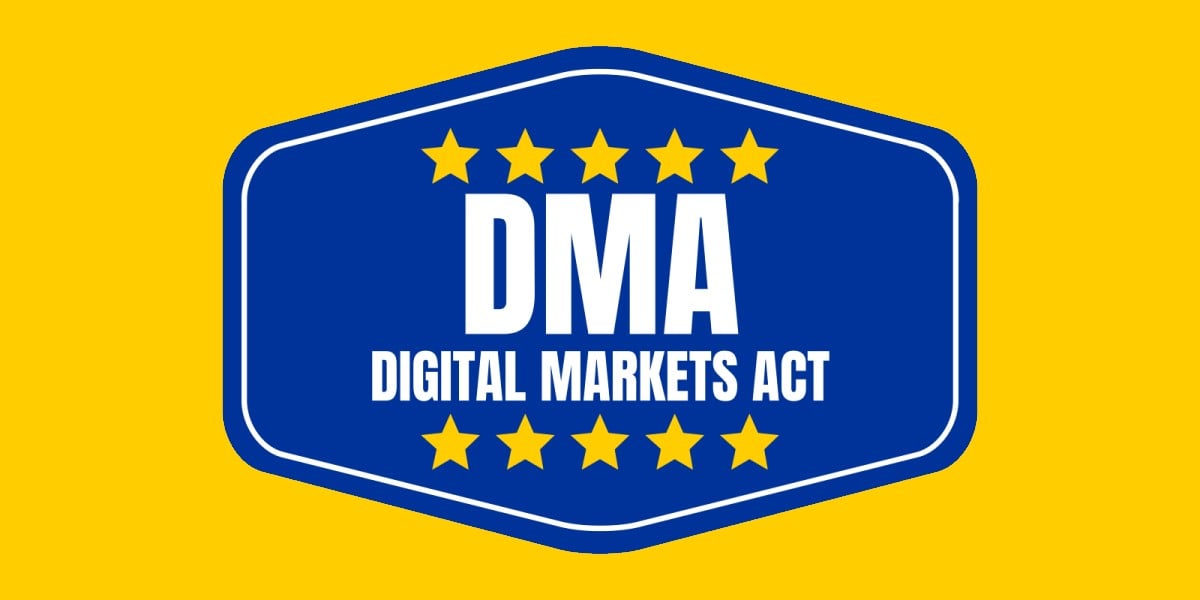The DMA Hasn't Changed Big Tech's Anticompetitive DNA, Says Free Software Foundation Europe

On Thursday, Europe's Digital Markets Act (DMA) came into force, requiring large gatekeepers companies to play nice with smaller rivals.
The Act has already disappointed those who hoped platform companies like Apple would respond in good faith rather than what's been called malicious compliance, and now the Free Software Foundation Europe (FSFE) has decided the regulation should be just the beginning of wider reform.
“The DMA represents a bold step from the EU to regulate large companies acting as gatekeepers over devices," Lucas Lasota, FSFE's legal program manager, told The Register. "However, proper implementation of the law will be challenging, and it will require strict monitoring from civil society to safeguard Device Neutrality. The DMA is only the first step. The Open Internet needs Device Neutrality. Free Software is key to achieve that."
Toward that end, the FSFE has launched a Device Neutrality website to advocate for the right to:
- Run free software on all of our devices, mobile, desktop, or otherwise;
- Be free of vendor-dictated rules that place limits on how we use our devices; and
- Data portability.
"Safeguarding Free Software alternatives to operating systems, drivers, app stores, browsers and other software is crucial for freedom of choice and a healthy, competitive, democratic, diverse and sustainable digital society," the FSFE website argues.
In a phone chat with The Register, Lasota explained that FSFE has worked on hardware for the last decade.
"While everybody was talking about the data flow and the end-to-end principle, with the Free Software Foundation Europe, we focused on the hardware part of it, basically, internet devices, routers, and modems," said Lasota. "Much of the regulation at the time here in the European Union was focused on the telecom law. And our demand was that end-users and consumers should have the opportunity to use their own routers."
That right is supported in the EU's Open Internet Regulation, which requires non-discriminatory treatment of network traffic among internet service providers. The net neutrality rules took effect in 2016, though still aren't universally respected, according to FSFE.
- Google dresses up services for the EU's Digital Markets Act
- EU users can't update 3rd party iOS apps if abroad too long
- Mozilla slams Microsoft for using dark patterns to drive Windows users toward Edge
- What do Apple, Meta, TikTok have in common? Fighting off Europe's stiff antitrust rules
When European lawmakers started working on the Digital Markets Act, which covers infrastructure, and the Digital Services Act, which covers content, the FSFE saw an opportunity to build support for its views.
"Four years ago, we entered into this debate in order to protect the interests of the free and open source community," said Lasota, "because we wanted to make sure that end-users have the possibility to install and uninstall software on their devices, to safeguard software freedom, and also to protect them from lock-in."
Lasota said while the FSFE is happy the DMA has come into force, but that it has more work to do.
“Our advocacy does not end with this law because the digital markets act is intended only for very, very large companies. … We think that this type of obligation should also apply to smaller players in the market, because [there are small firms] that also restrict the ability and the freedoms of end-users to install and uninstall software on their devices."
The need for continued advocacy can be seen in a report [PDF] prepared for the Headquarters for Digital Market Competition of Japan that takes a dim view of Apple's DMA concessions. The report concludes that "while the DMA aims to promote contestability and fairness, Apple's proposed changes may reinforce its monopolistic behavior by restricting software freedom, strengthening the dependency of developers and users on its own services and products and increasing switching costs."
Lasota said that the FSFE is pursuing two strategies to advance the cause of Free Software. The first involves monitoring gatekeeper companies to ensure they're complying with the rules. The second is simply raising awareness of these issues, as the Device Neutrality website aims to do.
"We foresee that, especially large parts of the population, they don't perceive that they are losing their rights," he said. "We think the DMA is not enough and we need to expand these types of rules beyond the scope of the DMA."
Later this year, according to Lasota, the FSFE is planning to launch Device Neutrality initiatives involving two different operating systems. He didn't say which ones. ®
From Chip War To Cloud War: The Next Frontier In Global Tech Competition
The global chip war, characterized by intense competition among nations and corporations for supremacy in semiconductor ... Read more
The High Stakes Of Tech Regulation: Security Risks And Market Dynamics
The influence of tech giants in the global economy continues to grow, raising crucial questions about how to balance sec... Read more
The Tyranny Of Instagram Interiors: Why It's Time To Break Free From Algorithm-Driven Aesthetics
Instagram has become a dominant force in shaping interior design trends, offering a seemingly endless stream of inspirat... Read more
The Data Crunch In AI: Strategies For Sustainability
Exploring solutions to the imminent exhaustion of internet data for AI training.As the artificial intelligence (AI) indu... Read more
Google Abandons Four-Year Effort To Remove Cookies From Chrome Browser
After four years of dedicated effort, Google has decided to abandon its plan to remove third-party cookies from its Chro... Read more
LinkedIn Embraces AI And Gamification To Drive User Engagement And Revenue
In an effort to tackle slowing revenue growth and enhance user engagement, LinkedIn is turning to artificial intelligenc... Read more

